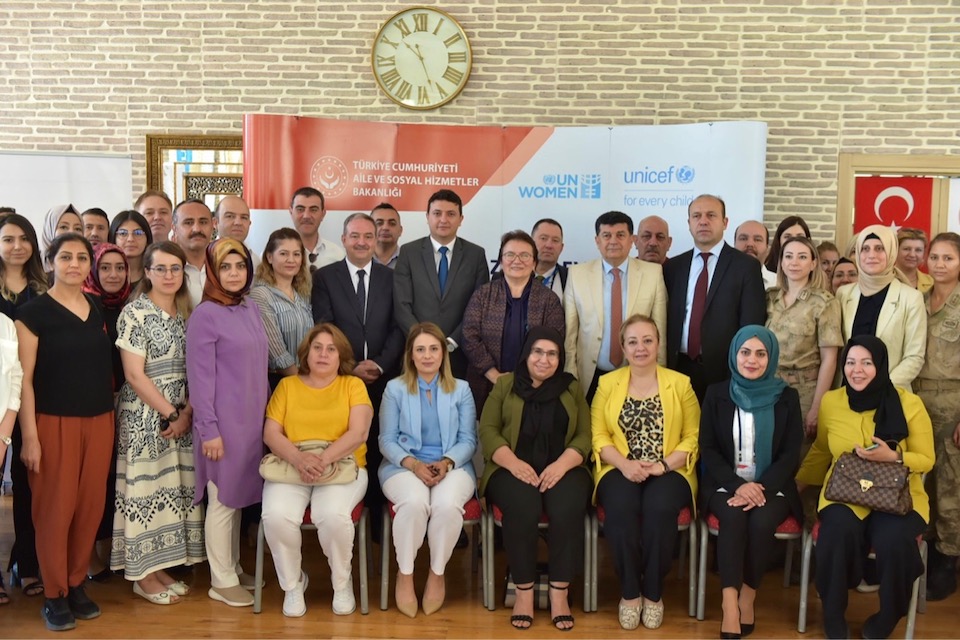Rural areas in Türkiye take another step towards ending early and forced marriages
Date:
With early and forced marriage rates on the decline in rural areas of Türkiye, there is no let-up in efforts to finally end these practices. Comprehensive training sessions, supported by UN Women and the UN Children’s Fund (UNICEF) in cooperation with the Ministry of Family and Social Services, boosted the efforts of more than 100 experts, officials, civil society representatives and other professionals working in 21 provinces across the country.[1] Over three days in Van and Mardin, 132 participants gained new skills and knowledge on how to develop action plans to address early and forced marriages tailored to the unique situation in their provinces.

Mardin Provincial Director, Mehmet Zeki Eryarsoy, said during the opening speech at the Mardin training session that awareness efforts, including, for example, community outreach to wedding organizers, hairdressers, and others were paying off, with early and forced marriages on the decline. “Our efforts on this issue will continue even though we have come a long way in the fight against early and forced marriages thanks to school administrators, student counsellors, family support centres, multi-purpose community centres and the trainings and meetings we held for students,” he said.
With these practices considered a form of violence and discrimination against women and especially girls, ending early and forced marriages is a priority for her ministry said Gülser Ustaoğlu, the General Director of the General Directorate on the Status of Women of the Ministry of Family and Social Services. “Through the training programme, we aim to examine the legal, health and social service aspects of early marriages on the basis of good practices in Türkiye and in the world, and to prepare provincial action plans in line with the provinces, together with our experts,” she added.
Deputy Governor of Mardin Gürsel Temurci said that training session like this were instrumental in achieving the social change needed to finally end these destructive practices, which affect both girls and boys. Girls in particular, who are married early, often miss out on education opportunities with lifelong consequences that are ultimately detrimental to the whole community.
UNICEF Türkiye Child Protection Specialist Pınar Öktem said that, like in Türkiye, globally, child marriage was on the decline, but COVID-19 and its impact on education and economies is expected to change this and collective efforts were more important than ever. “Mostly affecting girls, child, early and forced marriage is a violation of child rights, a form of violence against women and an obstacle to sustainable development goals. Evidence from countries that are successful in preventing child marriage shows that national and local strategies and action plans are crucial components of these efforts,” she said.
Since 2018, UNICEF, UN Women and the UN Population Fund have been carrying out activities in various provinces of Türkiye on these issue within the scope of the joint programme on the prevention of early and forced marriages with the Ministry of Family and Social Services. “We attach great importance to this cooperation because the cooperation between the public, academia, civil society and international organizations makes us stronger in preventing all forms of violence against women,” said UN Women Türkiye Project Coordinator Duygu Erseçen.
[1] The provinces included: Ağrı, Aksaray, Antalya, Ardahan, Bitlis, Diyarbakır, Edirne, Gaziantep, Hatay, Iğdır, İzmir, Kars, Kahramanmaraş, Kilis, Mardin, Muş, Nevşehir, Niğde, Şanlıurfa, Van and Yozgat.